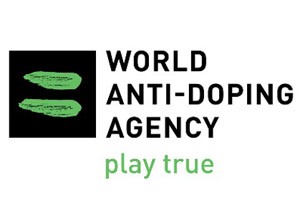UCI faces questions over letters sent to team sponsors
 With the Tour of Beijing now underway and taking place in a country where there are known issues with potential food contamination with Clenbuterol, the UCI and WADA have both said that they are advising some caution to the competitors taking part in the event.
With the Tour of Beijing now underway and taking place in a country where there are known issues with potential food contamination with Clenbuterol, the UCI and WADA have both said that they are advising some caution to the competitors taking part in the event.
The World Anti Doping Agency has seen many cases over the past year or more of athletes testing positive for the substance. Asia and South America are known to be two problem regions due to the illicit use of the growth promoter there, thus greatly increasing the risks as compared to the more-tightly regulated European countries.
While WADA’s stance is that Alberto Contador’s case involving Spanish meat is not due to food issues, it is being more cautious about those competing in the problem areas.
Clenbuterol remains a zero tolerance substance and so the agency wants sportspeople to be aware of what to do to avoid having any problems in this regard.
Contacted by VeloNation, WADA spokesman Terence O’Rorke explained the agency’s stance. “WADA has been in contact with the authorities in China and continues to monitor the situation with regards to contaminated meat. This is a government issue to solve,” he said.
“WADA is working closely with countries, International Federations and event organizers to help minimize the risk of contamination through the monitoring of meat at official hotels and restaurants. We advise IFs and NADOs to work with the event organizers ahead of competitions and proactively inform athletes accordingly.”
He had specific advice for the riders competing in events such as the Tour of Beijing. “WADA advises all athletes who travel to China to eat in official restaurants designated by event organizers to help reduce the risks of an inadvertent AAF [adverse analytical findings – ed.],” he said. “And, if at all possible, to eat in groups.”
The UCI’s advice is more basic. “We only recommended to the teams to be carefully eating meat there,” said its spokesman Enrico Carpani. VeloNation understands that some teams are instructing their riders to eat fish or chicken, rather than the more risky red meat.
Carpani also commented on rumours heard from more than one source by VeloNation that no anti-doping controls would be carried out at the race. He was dismissive of the possibility that organisers wouldn’t conduct analysis.
“That’s absurd: of course there will be tests in Beijing,” he said. “Clenbuterol will also be detected by local lab, which will be in charge of the analyses.
VeloNation understands that some teams’ concerns centre around out of competition testing after the event, due to the more precise analysis equipment in some European laboratories. In this light, avoiding certain types of meat appears to be the best way for competitors to put their minds at rest.
UCI faces questions over AIGCP dispute tactics:
In a related matter, the UCI came under pressure yesterday over details being revealed about letters sent in mid-August to the sponsors of various teams over the race radio dispute. The letters were long said to have existed but details were scarce until now; however, in a joint publication, the Cyclismas and Velocast websites reported yesterday that they had letters in their possession and cited at length from them.
They stated that it had agreed not to publish the letters themselves due to concerns that there could be repercussions for the teams.
The letters, one of which VeloNation has also now seen, were an attempt to put pressure on teams to agree to take part in the Tour of Beijing. The context was a dispute between the governing body and the team’s association AIGCP, which had told the UCI that it would boycott the race if it insisted on pushing through its ban on race radios.
The letters refer to what were said to be ‘blackmail threats’ by the teams, and pointed out that under UCI rules they were all obligated to take part in the WorldTour event. McQuaid told the sponsors that any team which did not take part in the race would be brought before the Licence Commission and could lose its licence plus all associated benefits.
More seriously, the letters made it clear that any boycott would be viewed very badly by the Chinese, and that there could be ‘repercussions’ of a commercial nature. This appears to have been a veiled suggestion to the sponsors that their own businesses could be affected.
The Cyclismas and Velocast websites quoted a denial by UCI spokesman Enrico Carpani that any threatening letters were sent. “I don’t know from where you got this, but I can only firmly deny UCI took such initiative. We are not used to work on this way.” The UCI has not commented since on the matter.
All the teams ultimately agreed to compete in Beijing, with the radio radio ban being put off for the 2012 season. A study will be carried out prior to any final ruling being made, although the AIGCP has voiced some concerns about the independence of the study group and has said it will not be bound by its conclusions.